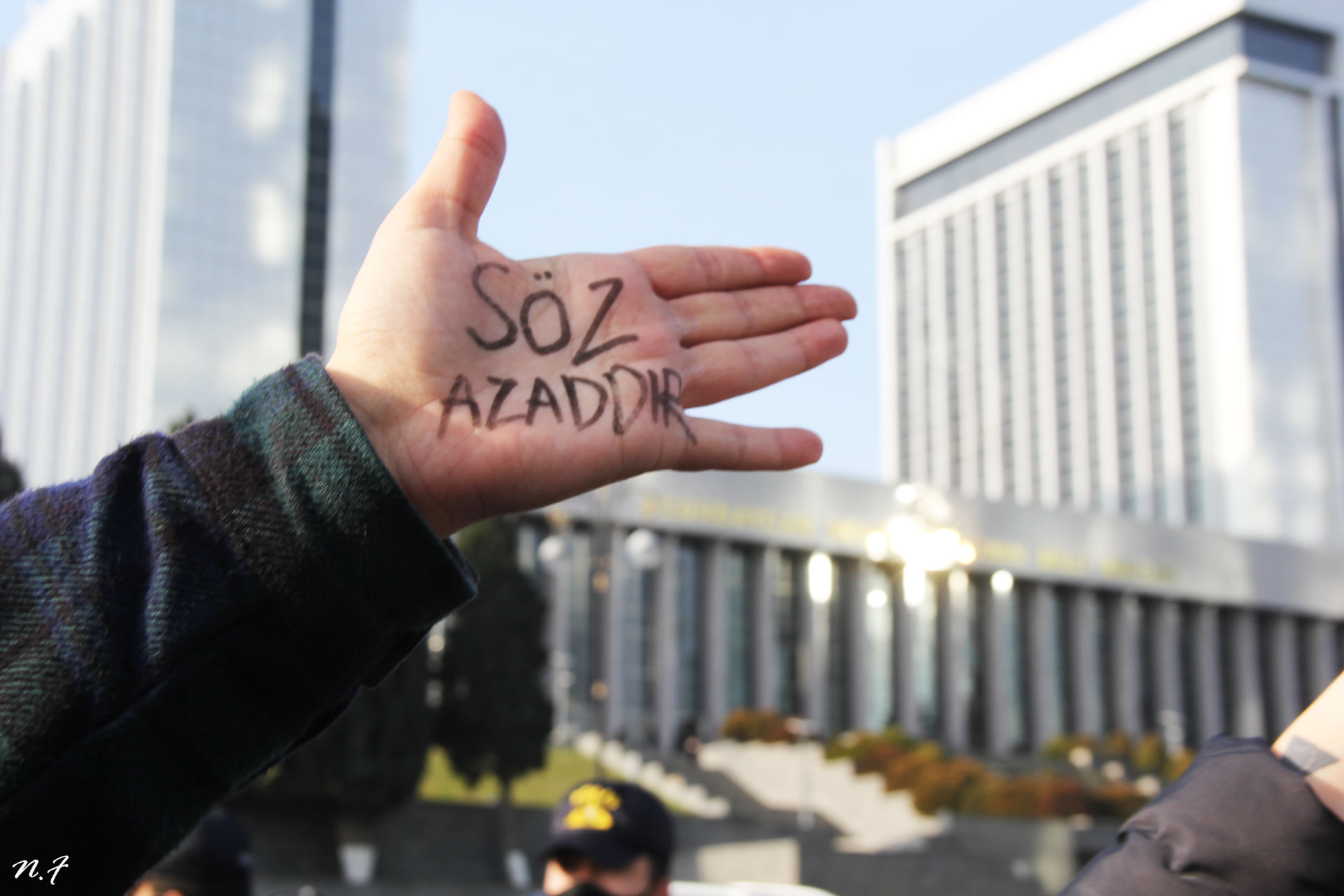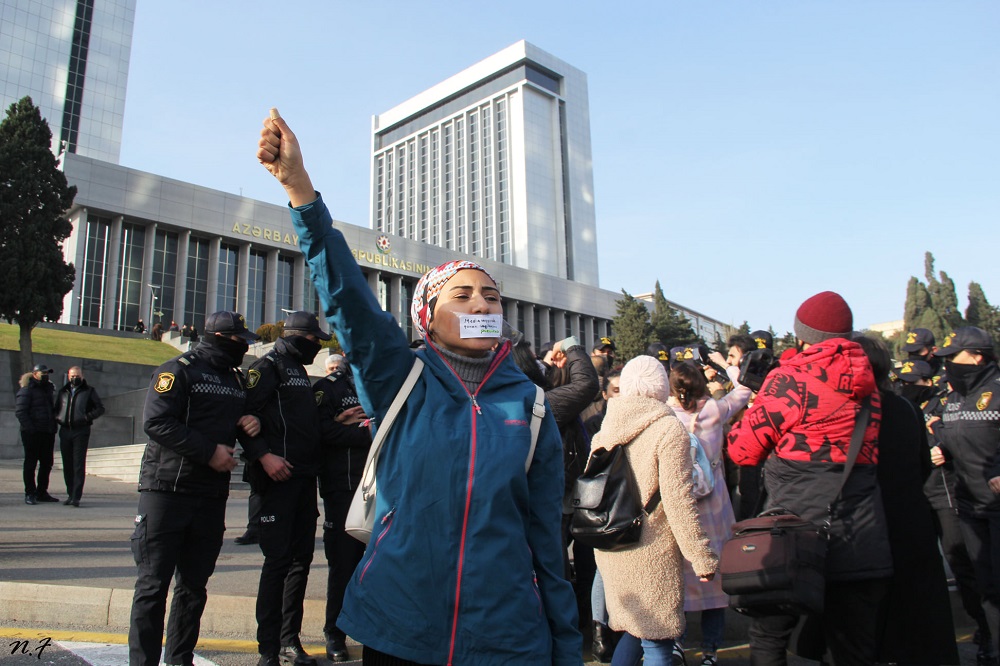Independent journalists in Baku demand repeal of law "On Media"
Protest against Media Registry
Independent journalists in Azerbaijan are protesting the Media Law and the Media Registry in public hearings, and say the new law is aimed at restricting freedom of expression and the complete destruction of independent media. The head of the MEDİA agency, Ahmed Ismayilov, said that journalists who were not registered would be able to continue their activities, but independent journalists believe this to be smokescreen to quell discontent.
- Court does not release Mikheil Saakashvili on health grounds
- EU urges Georgia to support aviation sanctions against Russia
- “US and Russia will not interfere with Azerbaijan” – comment from Baku
Contradictory statements from head of MEDİA
On February 6, at a meeting of the Parliamentary Committee on Economic Policy, Industry and Entrepreneurship, the Executive Director of MEDİA, Ahmed Ismailov, stated that “the media registry does not determine whether someone is a journalist.”
According to him, journalists can continue their activities without registration:
“If someone wants to be registered, they can take advantage of certain benefits provided by the state. I repeat, registration is not mandatory, the activities of journalists who have not been registered will not be limited,” Ahmed Ismailov said.
But the same day at a meeting of the press council, Ismailov stated the opposite: that a media structure that has not been registered will not be able to continue its activities.
He said that all media structures operating in Azerbaijan are required to register: “We have provided media entities with six months of time. If a media entity is not registered by then, we will go to court on this matter. And the court will ban the activity of that media entity.”
“The law rejected by the Venice Commission must be repealed”
Today, a group of independent journalists and media experts organized public hearings, where they called Akhmed Ismailov’s contradictory statements manipulation.

“They say that registration is mandatory, but for independent journalists it is voluntary. Let’s see how voluntary it is? A journalist goes out into the street to conduct a survey, a policeman comes up, asks who he is, searches him, and if he does not find his name in the register, he does not consider him a journalist. Ahmed Ismailov himself stated that if you are not registered, you are not a journalist. This already allows the police to calmly prevent the journalist from doing his job,” Meydan TV editor Aynur Elgunesh said.
Media law expert Alesker Mammadli notes that the law has not disappeared from the agenda since the day it was adopted, although opponents had hoped it would go away after the Venice Commission rejected it:
“The Venice Commission in its opinion stressed that this law is contrary to the European Convention on Human Rights. The Convention considers it expedient to license only in the field of television and radio, and apart from this does not support the subordination of any other type of media to the licensing system. Any such type of permission is interference with the freedom of the media. All this is aimed at eradicating the real media to leave an exclusively dependent press,” Mammadli said.
Experience of Europe or Mussolini?
Representatives of the MEDİA agency have repeatedly noted that European countries also have experience in maintaining a register of media entities and journalists. The editor-in-chief of the Toplum portal, Khadija Ismail, understood the veracity of this government argument:
“The government claims that there is precedent for this in Europe. I have researched this issue. There was in Italy. During the reign of Mussolini, a media registry was created and has existed ever since. In the years of Mussolini it was a licensing system, now only a registration system. Use these examples.”
The head of the news agency, Mehman Adiev, noted that the law “On Media” applies not only to the press, but to the entire media landscape:
“This is not only our problem, but also the whole of society’s, and society must speak out. Political parties, NGOs and above all individuals should express their attitude towards this law. Because the law clearly states that if the information produced is distributed between two persons, this is not mass information. But if a third party sees and reads it, it becomes mass media. Thus we are all subject to said law. For this reason, the law is flawed and it must be changed. The Media Law is an obstacle to the development of the information society, and this is a crime.”
The head of the Baku Press Club, Arif Aliyev, believes that the law should be repealed.
“This law will be a big headache for both the government, the media and all of society,” he said.
Participants in the discussion said they intend to draw the attention of the international community to the law, already rejected by the Venice Commission, and to challenge it in the Constitutional Court.




















